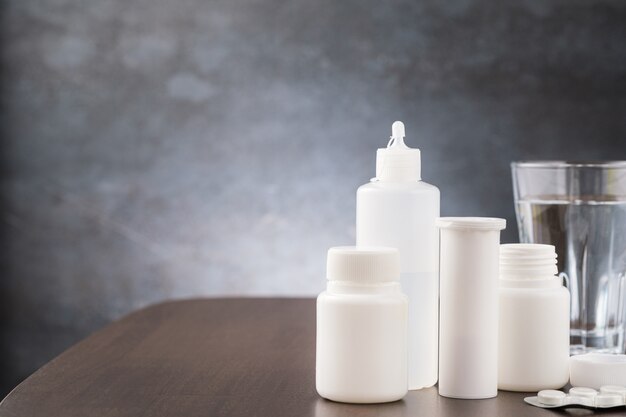Unveiling the Mysteries of Repatha Storage: How Long is Too Long Outside the Fridge?
The storage of medications is a topic often fraught with uncertainty and confusion. When it comes to storing Repatha, a drug prescribed for lowering cholesterol, the concern is real and pressing: how long can Repatha be left out of the refrigerator before it becomes ineffective? Let's dive into this question to help you understand and manage the storage of Repatha safely and effectively.
Understanding Repatha
Repatha, known scientifically as evolocumab, is a medication used to help lower LDL cholesterol levels in the blood. It’s typically prescribed for those who have heart disease or familial hypercholesterolemia, a genetic disorder that causes high cholesterol. Administered by injection, Repatha is a protein and, like many biologics, it requires careful temperature regulation to ensure its efficacy.
Why is Temperature Important?
Proteins are sensitive to environmental conditions. Exposure to temperatures outside the recommended range can result in denaturation, meaning the protein’s structure may alter and lead to reduced effectiveness or complete inactivation of the medication. Hence, understanding the appropriate storage conditions is crucial for anyone using Repatha.
Proper Storage of Repatha
Recommended Storage Conditions
Repatha should be stored in the refrigerator at temperatures between 36°F and 46°F (2°C and 8°C). But life happens, and sometimes medications might be left out unintentionally. Knowing the limits of how long Repatha can remain unrefrigerated provides valuable guidance for users.
How Long Can Repatha Stay Unrefrigerated?
Repatha can be kept outside the refrigerator for up to 30 days at room temperature (up to 77°F or 25°C) without compromising its effectiveness. Once it returns to refrigerated storage, after having been at room temperature for any duration, it still must be used or discarded within 30 days.
Important Note: Once Repatha is removed from the refrigerator, it must not be returned there more than once. The shelf life subsequent to a temperature change is altered, thus requiring specific attention to time management.
Related Considerations and Tips
Identifying Effective Management Practices
To ensure optimal handling of Repatha, consider these practices:
- Mark the Date: When removing Repatha from the refrigerator, mark the date on the packaging. This simple action helps track how long it has been unrefrigerated.
- Temperature Awareness: Use a reliable thermometer to monitor room temperature, ensuring it stays within a safe range.
- Develop a Routine: Integrate checking medication into your routine, especially when planning for travel or extended time away from home.
Safe Disposal Practices
If Repatha exceeds the allowable unrefrigerated period:
- Dispose of it in accordance with local regulations for medication disposal.
- Do not use expired or improperly stored Repatha. If in doubt, consult a healthcare provider or pharmacist for guidance.
Exploring Other Cold Chain Medications
Repatha isn’t alone in its need for careful temperature management. Many other medications, especially biologicals and certain injectables, require similar care. Understanding this broader context can enhance your capability to manage such medications effectively.
Why Do Cold Chain Medications Exist?
Cold chain medications, including vaccines and some forms of insulin, need precise temperature controls to maintain their potency. The science behind these requirements is rooted in the molecular complexity of the substances, which often involves proteins or components that are sensitive to heat.
General Tips for Cold Chain Management
- Regular Checks: Ensure regular inspections of refrigeration units used for medication storage.
- Backup Solutions: Have a contingency plan in place, such as a backup refrigerator or ice packs, for situations like power outages.
- Education and Training: Stay informed and train others on the importance of maintaining cold chain integrity.
Personalized Medicine and the Future of Storage
Understanding storage requirements is also part of the broader context of personalized medicine. As medical science advances, treatments are becoming more bespoke, and proper handling becomes even more critical.
Expected Innovations
Future innovations might include:
- Smart Packaging: Packaging that can alert you when storage conditions are compromised.
- Integrated Sensors: These will monitor the temperature in real-time and provide alerts via smartphone applications.
- Improved Formulations: Research into more stable formulations that might withstand a wider range of temperatures without losing efficacy.
These advancements aim to simplify medication management, ensuring that effectiveness is maintained without adding anxiety over storage conditions.
Key Takeaways: Handling Repatha with Ease
Here's a quick reference guide to managing your Repatha safely:
- 🗓️ Date It: Always note when you take it out of the fridge.
- 🕐 30-Day Window: Remember, 30 days unrefrigerated is your limit.
- ❄️ One-Time Exception: Once it’s out, return it to the fridge only once.
- ⚠️ Safe Disposal: Dispose of unused medication responsibly if it goes beyond its time out of refrigeration.
These practical tips can help ensure you're handling Repatha properly, maintaining its effectiveness without unnecessary stress.
Conclusion: Navigating Medication Storage with Confidence
The journey through Repatha’s storage requirements reveals the importance of precision and care in managing medications. Although navigating the world of cold chain management can seem complex, it boils down to understanding key principles and staying informed about proper practices. Whether for Repatha or other temperature-sensitive medications, being proactive and mindful makes a significant difference in maintaining their effectiveness and your peace of mind. Always consult healthcare professionals or pharmacists with any questions to ensure safety and efficacy in your medication management.

